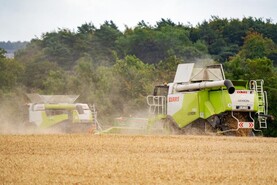There has been a strong reaction to last week’s front page story on TB testing. The IFA rejected pre-movement testing for high-risk herds as “another wheel under the TB testing gravy train”.
Reactor numbers, having fallen from about 45,000 in 1998 to 15,000 in 2015, have slowly increased since.
Two quick points. Firstly, dairy expansion has seen an extra 400,000 cows come into the national herd. Secondly, this pattern is one we have seen before. Those 45,000 reactors in 1998 were a spike back to late 1980s infection levels, with a previous spike in the mid-70s.
It’s a little like the COVID-19 case numbers, which have yo-yo’d as we have gone in and out of lockdown, both in Ireland and all over the world. With the coronavirus pandemic, there is a broad consensus as to how to minimise spread of infection. The arguments are mainly over the cost/reward of the draconian approach we are taking.
There seems to be less agreement on why TB levels are rising.
Wildlife control
The farm organisations claim the eye was taken off the ball regarding wildlife control, particularly badgers but also, in some regions, deer.
This is a parallel to the “close the borders/quarantine visitors” theory – the New Zealand model. Accepting that wildlife control will be imperfect, what else can we do?
Funding is a major issue. Perversely, the EU’s contribution is falling because TB cases are rising, so we have less money to tackle a bigger problem. It’s stick over carrot. It means we are basically on our own – the Government is this year putting in €57m, farmers €35m, and the EU only €4.3m.
We need a game-changer.
The Gamma Interferon blood test identifies more reactors – 90% as opposed to about 80% – but carries the cost of more false positives.
Should we take the ultimate step and bear that cost to reduce the hidden carriers? Blood testing every animal in a herd identified as high-risk and removing all doubtful animals would cost an arm and a leg.
But if it worked as a circuit-breaker, it would achieve long-term savings. It’s projected the current programme will cost €1bn this decade. And that’s with animal valuation and lost income payments that leave farmers distinctly underwhelmed.
Perhaps that’s the ultimate COVID-19 lesson for TB control. In the first lockdown, the Government wrote the cheques, and bought public goodwill for a radical approach. Is it time for the chequebook, Charlie?






 This is a subscriber-only article
This is a subscriber-only article










SHARING OPTIONS: